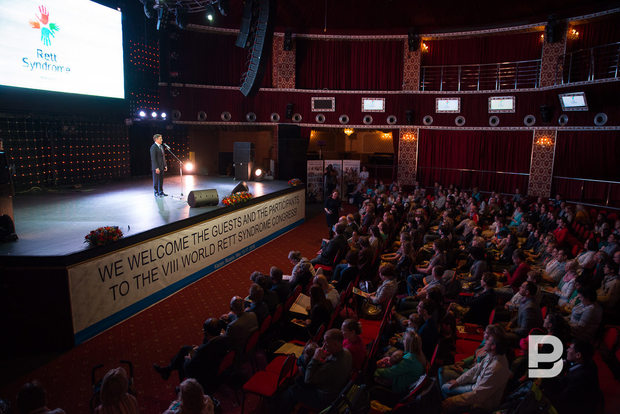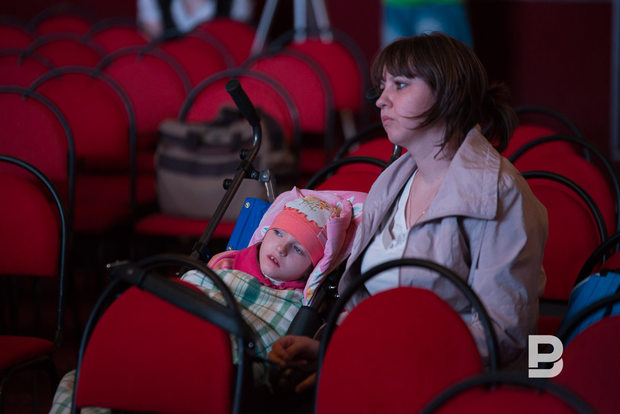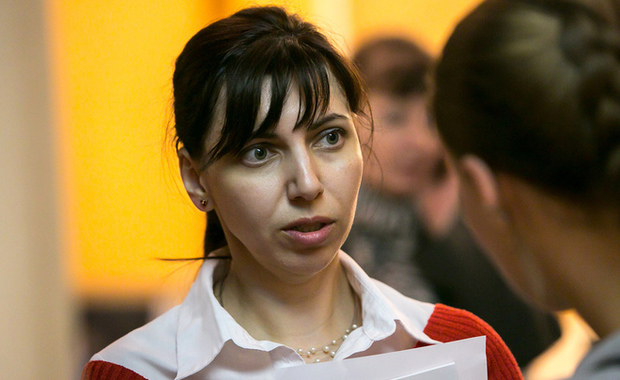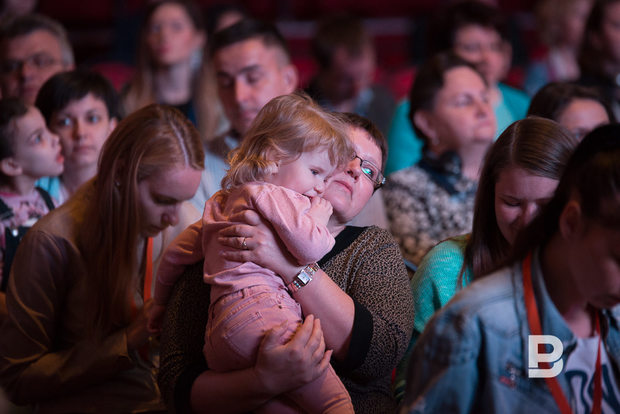''We are waiting with hope because our children are growing up and want to live''
The columnist of Realnoe Vremya Olga Timurtsa suggests ways of solving the problems associated with the rare disease of Rett syndrome
In May 2016, Kazan hosted the VIII World Rett Syndrome Congress, organized by the fragile woman but strong fighter, Olga Timutsa, the head of the Rett Syndrome Association in Russia. The columnist for Realnoe Vremya decided to highlight the results of the work of the Rett Community in 2017 because it is not only important but necessary to tell about. It is symbolic that Olga Timutsa summarizes the results in the first days after October — the month of awareness of Rett syndrome worldwide.
What has changed?
Summing up the results in 2016 for people with rare diseases, I was kind of pessimistic, which is absolutely not typical for me. But looking facts in the face, I recognized the defeat of the Russian community of people with rare diseases for whom there is no treatment (or they are not looked for), no drugs (or they exist, but they are not provided with them). Among great number of rare diseases I chose and wrote about Rett syndrome, mucopolysaccharidosis, spinal muscular atrophy, tyrosinemia. The first disease of my eldest daughter, with which she has lived for already 22 years. In recent years, the life has turned into daily struggle against the disease. When you're really discouraged, the only way to maintain optimism and hope for the best — to summarize the conducted work. Then it becomes obvious how much is done and that it is not in vain.

''Collaboration with the federal ministry of health has become more constructive.'' Photo: Maksim Platonov
The VIII World Rett Syndrome Congress held in May 2016 in Kazan gave impetus to the development of several directions:
- First, collaboration with the federal ministry of health has become more constructive: high-level professionals at the level of professional medical societies have been involved in the work with children with Rett syndrome;
- Second, it turned out that the number of children with Rett syndrome is much more than given in the official statistics, and families who previously did not know where to turn for information, have begun to register on the website of the association and in its groups in social networks as well as to communicate with each other, manifesting social activity;
- Third, we have learned that in many countries there are national standards of diagnostics, treatment and rehabilitation for Rett syndrome, but we in Russia have none of them;
- Fourth, families with children who have all clinical signs of Rett syndrome go in Russia a long way from detection to diagnosis, often the child is not offered to do genetic analysis to identify mutations, and this means that the child is left without prediction and medico-social support;
- Fifth, it is obvious that the welfare of people with Rett syndrome is one of the indicators of quality of life for the whole family and today, unfortunately, for adult patients living in the family there is no such figure.

''The second project is a school for parents of children with Rett syndrome. From the moment of registration of the association in 2011, it was decided to train parents and professionals.'' Photo: Maksim Platonov
The results of the Rett community work
This year our Rett Syndrome Association has launched two major projects on two crowdfunding platforms: Добро.мэйл.ру and iKarta. On the first platform we raise funds for adult girls with Rett syndrome and her mother. We have long understood that the category 'terminally ill adults' almost never collects funds. But this category today need support most of all. Children grow up, assistance is reduced, health problems increase. People live with Rett syndrome with good care for a long time. But parents again and again remain alone with the problems of grown-up sick child. Therefore, we decided that we will try to collect money for the needs of adults with Rett syndrome. For now, the project is going with problems, but we do not lose hope because our first ward, a girl from Ulyanovsk, Alena, and her mother, Svetlana, need an assistant, MRI because of frequent attacks of epilepsy, and medications. Besides, we want to make a video about our children and families.
The second project is a school for parents of children with Rett syndrome. From the moment of registration of the association in 2011, it was decided to train parents and professionals. Schools were held in 2011, 2013, 2014, 2016 (in Kazan), in 2012 (in Moscow), in 2015 (in Yekaterinburg). Generally, for parents it was one-day seminars with lectures and consultations. For doctors — thematic courses, held in cooperation with the Kazan State Medical University. But in 2018 we planned a school, which will be held in a week. We have agreed to carry it out with the Child Republican Clinical Hospital, on the base of which there will be organized lectures, consultations, and necessary testings for children.
One of the greatest achievements, in my opinion, has been training this year for a doctor from Kazan, Doctor of Medical Sciences, Professor at KSMU, Svetlana Volgina. In the framework of the grant competition Algarysh of the government of the Republic of Tatarstan, she actively participated in the work of the organizing committee of the VIII World Rett Syndrome Congress in the Australian Rett center in the city of Perth. Dr Volgina spent there three months, saw how the work with children and families is organized, familiarized with international standards of diagnosis and rehabilitation for Rett syndrome, helped the scientific staff of the center to maintain the world database on Rett syndrome. She has shared with the gained experience and knowledge with us.

''In our opinion, in Russia we need only one federal center and anchor centres in each region. The functions of the centres should be coordination, guiding component for parents and professionals in diagnosing, drawing up a router for treatment and rehabilitation, monitoring of functional status of patients with Rett syndrome.'' Photo: Roman Khasaev
It is very important so that these valuable knowledge was received and applied. After all, a centre does not need additional resources — Rett centers around the world operate on the base of multi-purpose clinics, where there are concentrated the maximum of expertise and areas, where doctors have a high chance to meet more than one patient with the rare disease and become an expert for families. In Russia there is no such Rett center. We expect a rehabilitation center in the city of Orel will start to operate soon. But in our opinion, in Russia we need only one federal center and anchor centres in each region. The functions of the centres should be coordination, guiding component for parents and professionals in diagnosing, drawing up a router for treatment and rehabilitation, monitoring of functional status of patients with Rett syndrome.
Advances in the study of the disease
The biggest news for the international parent Rett community — the news about the third phase of the research, involving testing of drugs against Rett syndrome. This was announced in October by the company Newron (the USA), successfully completed the second phase of testing last year. This news means that it is being tested a drug that will not have an effect on individual symptoms of the disease but Rett syndrome as a whole.
Besides, the fund for support of research of Rett syndrome in the US has developed a three-year plan of action, naming the syndrome the leading genetic cause of disability among women. The main directions of the plan — gene therapy and reactivation of the gene МЕСР2. The experts of the scientific committee of the fund claim that the study of Rett syndrome can open the door to treatment of other illnesses such as schizophrenia, bipolar disorders and autism, which affect millions of people.

''Though it has been 4 months since our application to the ministry of healthcare of Russia, we are waiting with persistence and hope because our children are growing up and want to live.'' Photo: Maksim Platonov
Hopes for the future
We are entering the year 2018 with new hopes: Rett syndrome will be recognized in Russia a life-threatening disease and standards of diagnosis and rehabilitation of Rett syndrome will be developed; it will be developed a router for patients with Rett syndrome. And the assistance will be provided at the highest level. Although it has been 4 months since our application to the ministry of healthcare of Russia, we are waiting with persistence and hope because our children are growing up and want to live.